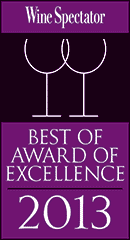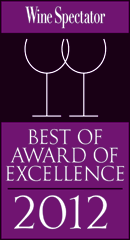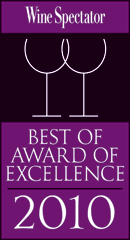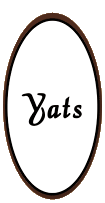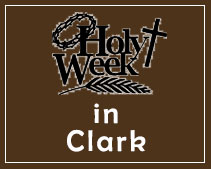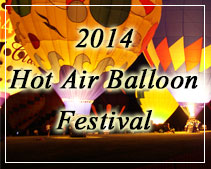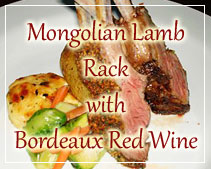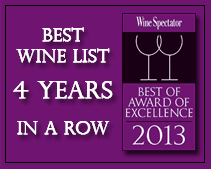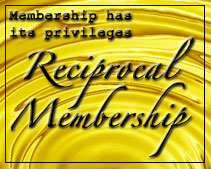Keeping up with Coffee Culture
July 22, 2011
What’s the coffee culture like in your city? Coffee culture, a term that Wikipedia defines as “a term used to describe a social atmosphere that depends heavily on coffee shops, espresso in particular, as a social lubricant”. While that article goes on to talk specifically about Seattle and its thick density of coffee shops and cafes, the truth is that coffee culture has existed for centuries, and the popularity of coffee shops in the late 1900s is just another little bubble in the history of coffee culture throughout the world.
The earliest record of coffee culture dates to the early 1400s in Yemen, one of the earliest exporters of coffee. The tradition of coffee houses, on which the establishment of a coffee culture depends, began in Mecca, and was encouraged by those in power who felt that the influence of coffee was better than that of another popular stimulant, kat. Those coffee houses were called kaveh kanes, and became social hubs where men could gather over coffee to discuss business, exchange gossip, play chess and enjoy entertainment – all for the price of a cup of coffee. Sounds an awful lot like the coffee shops and coffee culture of today, no?The Yemeni coffee houses were also places where politics were discussed and rebellion fomented, which eventually led to their attempted suppression – not once, not twice, but repeatedly. The coffee culture was so entrenched by this time, though, that it proved nearly impossible to eradicate the coffee houses. Instead, the government eventually cashed in on the trend by taxing coffee by the cup. Much later, a Dutch traveler noted about the coffee culture in Yemen that the coffee houses were “the only theatres for the exercise of (non-religious) eloquence. … Young scholars walk about and deliver discourses on all sorts of subjects. They make up the most wonderful tales, inventing, singing, making tales and fables”. The manuscript, written by Carsten Niebuhr in the 1760s, sounds remarkably like an open mike reading at a coffee house today.
Between the beginnings of coffee houses in Yemen and Niebuhr’s visit there, though, coffee culture had started to spread throughout the world. By 1475, there are written records of a coffee house called Kiva Han in Constantinople. Turkish coffee, brewed in an ibrik, was served along with entertainment and – no surprise – political and social commentary. The first recorded coffee house in Europe was, interestingly, the result of the spoils of war. The story of that first cafe is possibly one of the most romantic in the annals of coffee culture. The Turkish armies had encamped in Vienna, taking over the city. A young Pole by the name of Franz Georg Kolschitzky, had been instrumental in engineering the defeat of the Turkish. He and a servant slipped into the Turkish encampment and wandered around it, gathering information that he then carried with him to the Christian troops of King Sobieski and Duke Charles of Lorraine. His message brought the troops to Constantinople just in time to save the city. When asked to name his reward for his service, Kolschitzky asked for 500 pounds of ‘camel fodder’ that had been left behind by the Turks. Using that camel fodder – green coffee beans – Kolschitzky established Vienna’s first coffee house, Kolschitzky’s Cafe.
Coffee culture spread througout Europe quickly and made its way to the British isles. Between 1670 and 1685, coffee houses sprouted up throughout London, attracting scholars and politicos. Writing in 1675, a young man noted,
“Now, whither shall a person, wearied with hard study, or the laborious turmoils of a tedious day, repair to refresh himself? Or where can young gentlemen, or shop-keepers, more innocently and advantageously spend an hour or two in the evening, than at a coffee-house? Where they shall be sure to meet company, and, by the custom of the house, not such as at other places, stingy and reserved to themselves, but free and communicative; where every man may modestly begin his story, and propose to, or answer another, as he thinks fit…In brief, it is undeniable, that, as you have here the most civil, so it is, generally, the most intelligent society;”
Nearly 350 years ago, the unnamed scholar described what is still the dominant coffee culture in coffeehouses throughout the world – a place where people come to spend an hour or two, meet company, tell stories and entertain each other. Coffee culture revolved around entertainment, erudition and politics. In London, the coffee houses were nicknamed “penny universities”, where a man could learn more in an evening of listening than he could in a month of studying. In 1675, King Charles II tried to ban coffee houses as ‘hotbeds of revolution’, but had to withdraw his proclamation after just 11 days because of the public outcry against it. The coffee culture was so entrenched and involved that it birthed other innovations in society. Jonathan’s Coffee House in Change Alley, for instance, was the birthplace of the London Stock Exchange, and Edward Lloyd’s Coffee House eventually became the headquarters for Lloyds of London, still the world’s most famous insurance company.
The coffee culture of Paris is credited with spawning the French Revolution. In 1773, the American colonists adopted coffee drinking as their patriotic duty after the British government allowed the East India Tea Company to import their tea untaxed, creating an unfair advantage for them over domestic companies. Coffee vendors and coffee shops were well-established in Italy and throughout Prussia. In every one of those cities, coffee, culture and politics became intertwined.
Today, the general impression of the coffee culture is not much different than it was back in Yemen and Constantinople in the 1400s and 1500s. Coffee houses are congenial places where people meet, exchange ideas, listen to storytellers, enjoy art and entertain each other. While the big chains spread across the country and across the world, independent coffee shops continue to offer more than a fix of espresso – they offer a heady shot of coffee culture well-mixed with company, political discourse and a chance to mingle with others who are as enchanted by the atmosphere as they are the bean.
Source: http://www.talkaboutcoffee.com/keeping-up-with-coffee-culture.html
Best steaks in Pampanga can be enjoyed at the best restaurant in Angeles City Clark Philippines, Yats Restaurant offers an award winning wine list with over 2000 selections of fine vintage wine for wine lovers to enjoy with their juicy US steaks and wagyu tenderloin, quite a treat for meat lovers looking for a good restaurant outside of Manila to eat good steaks with fine red wine.
Regular guests of the best restaurant in Angeles City Pampanga requests for popular seafood dishes this summer, gourmet items like barracuda, Atlantic Mackerel and Sea bass that wine and food lovers are accustomed at the fine dining restaurants in Manila, Subic and Clark Philippines; many order a bottle of fine vintage wine from the wine cellars of Yats Restaurant, the best restaurant in Clark Philippines.
The carefully designed regional dinner menus released by fine dining Yats Restaurant in Pampanga bring food and wine lovers to culinary centers around the world without ever having to leave the country. For each culinary region such as France, Italy and American, classic recipes invented and perfected in each of those culinary regions are adopted here in the best restaurant in Pampanga. The result is a fine regional dinner that wine lovers can enjoy with the finest of vintage wines from that same region. This gives wine and food lovers an extra reason to travel out of town from Manila on a short getaway to the North to visit Angeles City, Clark Philippines and dine at the best restaurant in Clark Philippines. Many wine lovers also take this opportunity to shop at Clark Wine Center, the best wine shop in Pampanga, and bring back a few bottles of fine vintage wines to Manila.
For comments, inquiries and reservations click on Click here for inquiry and reservations
Restaurant@Yats-International.com
(045) 599-5600
0922-870-5178
0917-520-4401
Ask for Pedro and Rechel
Getting to this fine dining restaurant of Angeles City Clark Freeport Zone Pampanga Philippines
How to get to this fine-dining restaurant in Clark Philippines? Once you get to Clark Freeport, go straight until you hit Mimosa. After you enter Mimosa, stay on the left on Mimosa Drive, go past the Holiday Inn and Yats Restaurant (green top, independent 1-storey structure) is on your left. Just past the Yats Restaurant is the London Pub.
Yats Restaurant & Wine Bar
Mimosa Drive past Holiday Inn, Mimosa Leisure Estate,
Clark Freeport Zone, Pampanga, Philippines 2023
Manila Sales Office
3003C East Tower, Phil Stock Exchange Center,
Exchange Rd Ortigas Metro Manila, Philippines 1605
(632) 637-5019 0917-520-4393 Rea or Chay
For any assistance in planning and organizing a wedding ceremony, indoor or outdoor garden reception or to find other wedding service providers, Click here to contact us click here
For assistance in hotel and resort bookings in Clark, Pampanga, Philippines, log on to
http://www.HotelClarkPhilippines.com
To buy wine in Manila, Pampanga, Angeles City, Clark or Subic please log on to http://www. ClarkWineCenter.com
To inquire with the highly recommended beach resort hotel in Clark Pampanga visit http://www.ClearwaterPhililippines.com
For more information about Clark, Pampanga, Philippines log on to
http://www.ClarkPhilippines.com
